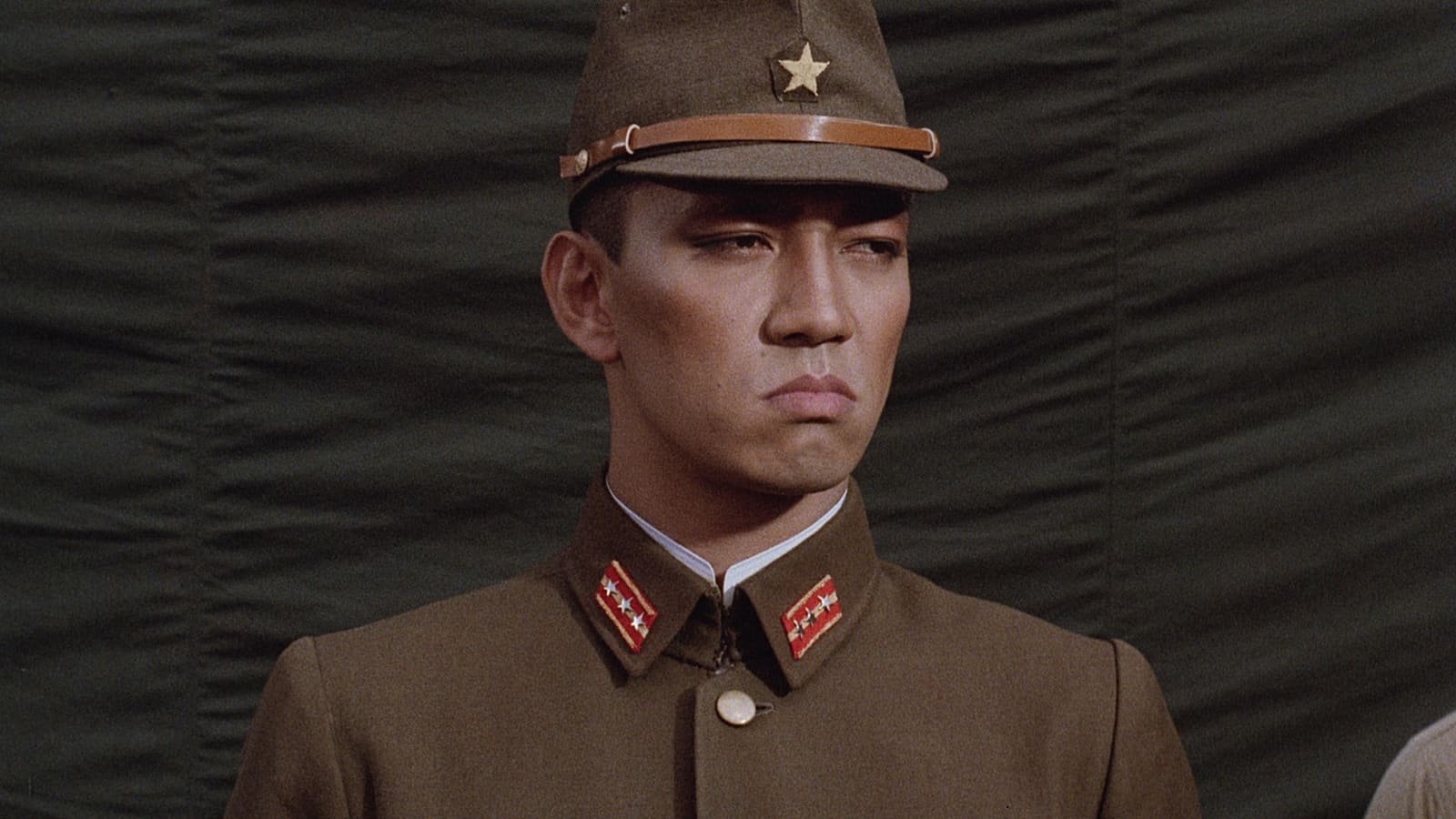Merry Christmas Mr. Lawrence

In this captivating, skewed World War II drama from Nagisa Oshima, David Bowie regally embodies Celliers, a British officer interned by the Japanese as a POW. Rock star Ryuichi Sakamoto (who also composed this film’s hypnotic score) plays the camp commander, obsessed with the mysterious blond major, while Tom Conti is the British lieutenant colonel Lawrence, who tries to bridge the emotional and language divides between captor and prisoner. Also featuring actor-director Takeshi Kitano in his first dramatic role, Merry Christmas Mr. Lawrence is a multilayered, brutal, at times erotic tale of culture clash, and one of Oshima’s greatest successes.
Special Features
- New, restored high-definition master, with DTS-HD Master Audio soundtrack on the Blu-ray edition
- The Oshima Gang, a 1983 making-of featurette
- New video interviews with producer Jeremy Thomas, screenwriter Paul Mayersberg, actor Tom Conti, and actor-composer Ryuichi Sakamoto
- Hasten Slowly, an hour-long 1996 documentary about author Laurens van der Post, whose autobiographical novel was the basis for the film
- Original theatrical trailer
- New and improved English subtitle translation
- PLUS: A new essay by film critic Chuck Stephens and reprinted interviews with director Nagisa Oshima and actor Takeshi Kitano
New cover by Lucien S. Y. Yang
Special Features
- New, restored high-definition master, with DTS-HD Master Audio soundtrack on the Blu-ray edition
- The Oshima Gang, a 1983 making-of featurette
- New video interviews with producer Jeremy Thomas, screenwriter Paul Mayersberg, actor Tom Conti, and actor-composer Ryuichi Sakamoto
- Hasten Slowly, an hour-long 1996 documentary about author Laurens van der Post, whose autobiographical novel was the basis for the film
- Original theatrical trailer
- New and improved English subtitle translation
- PLUS: A new essay by film critic Chuck Stephens and reprinted interviews with director Nagisa Oshima and actor Takeshi Kitano
New cover by Lucien S. Y. Yang

Cast
- David Bowie
- Celliers
- Tom Conti
- Lawrence
- Ryuichi Sakamoto
- Yonoi
- Takeshi Kitano
- Hara
- Jack Thompson
- Hicksley
- Johnny Ohkura
- Kanemoto
- Alistair Browning
- De Jong
- James Malcolm
- Celliers's brother
Credits
- Director
- Nagisa Oshima
- Producer
- Jeremy Thomas
- Based on the novel The Seed and the Sower by
- Sir Laurens van der Post
- Screenplay
- Nagisa Oshima
- with
- Paul Mayersberg
- Executive producers
- Masato Hara
- Executive producers
- Eiko Oshima
- Executive producers
- Geoffrey Nethercott
- Executive producers
- Terry Glinwood
- Associate producer
- Joyce Herlihy
- Music
- Ryuichi Sakamoto
- Production designer
- Jusho Toda
- Director of photography
- Toichiro Narushima
Edition introduction to Merry Christmas Mr. Lawrence
























